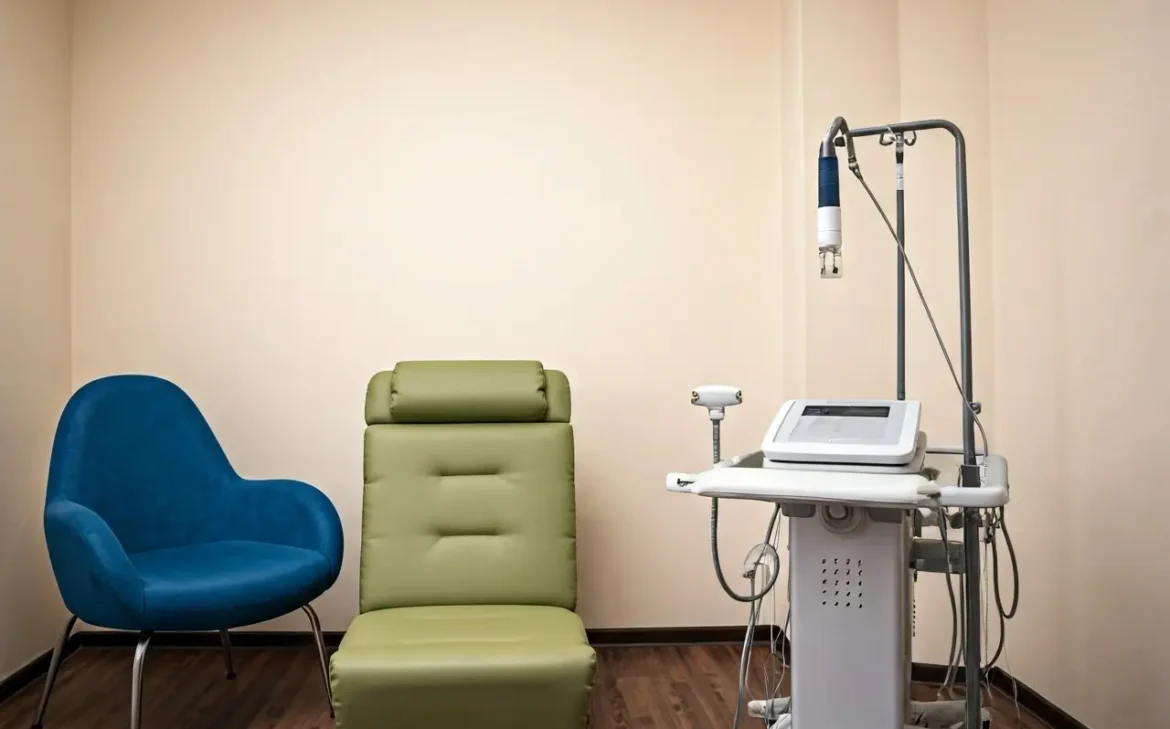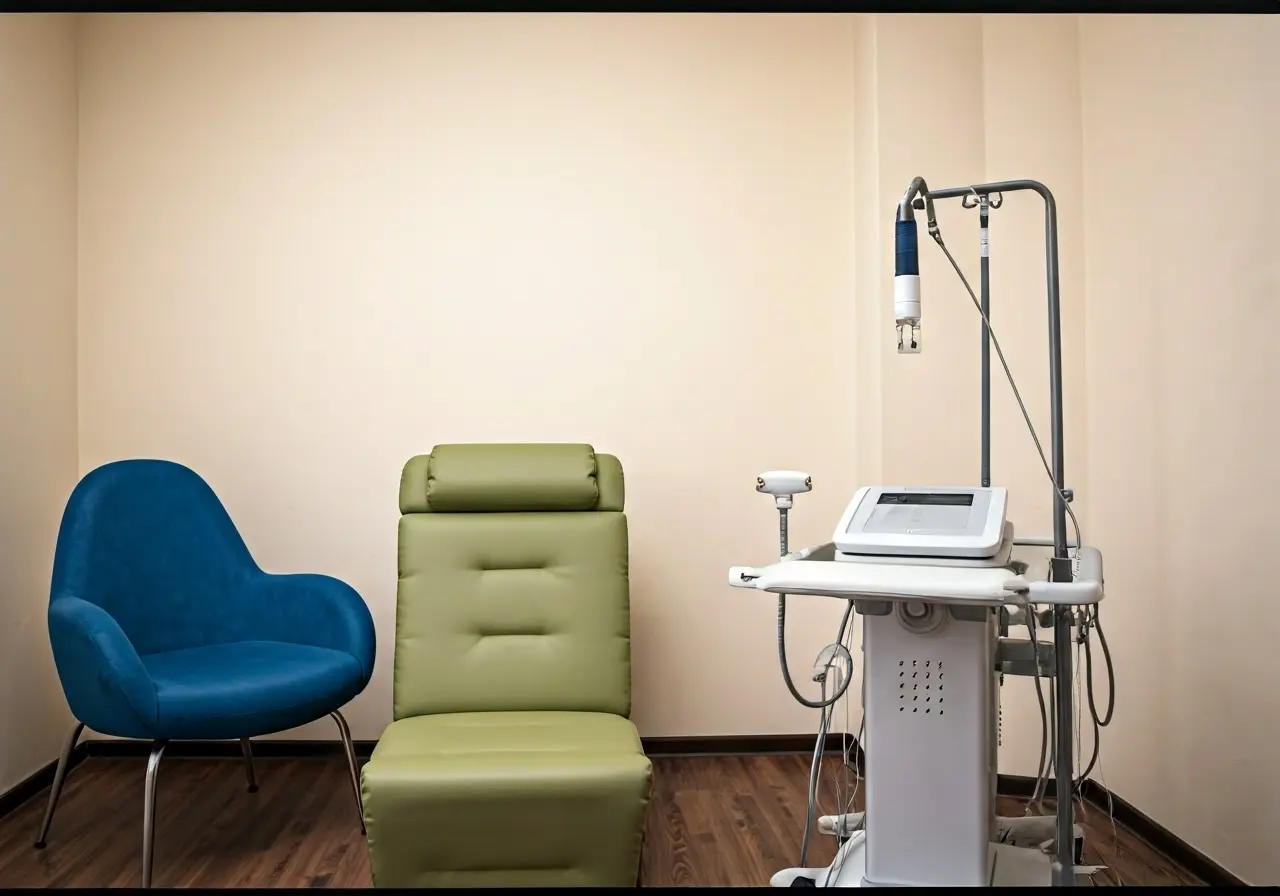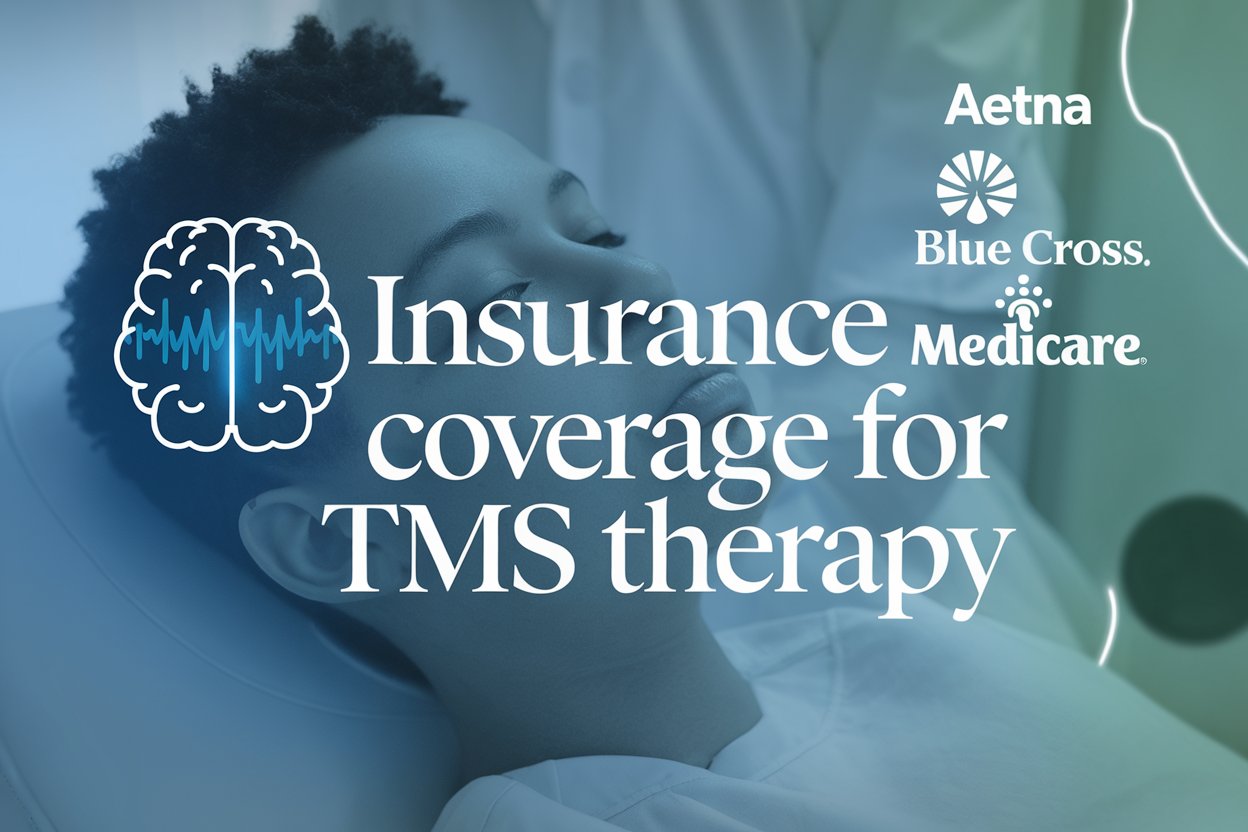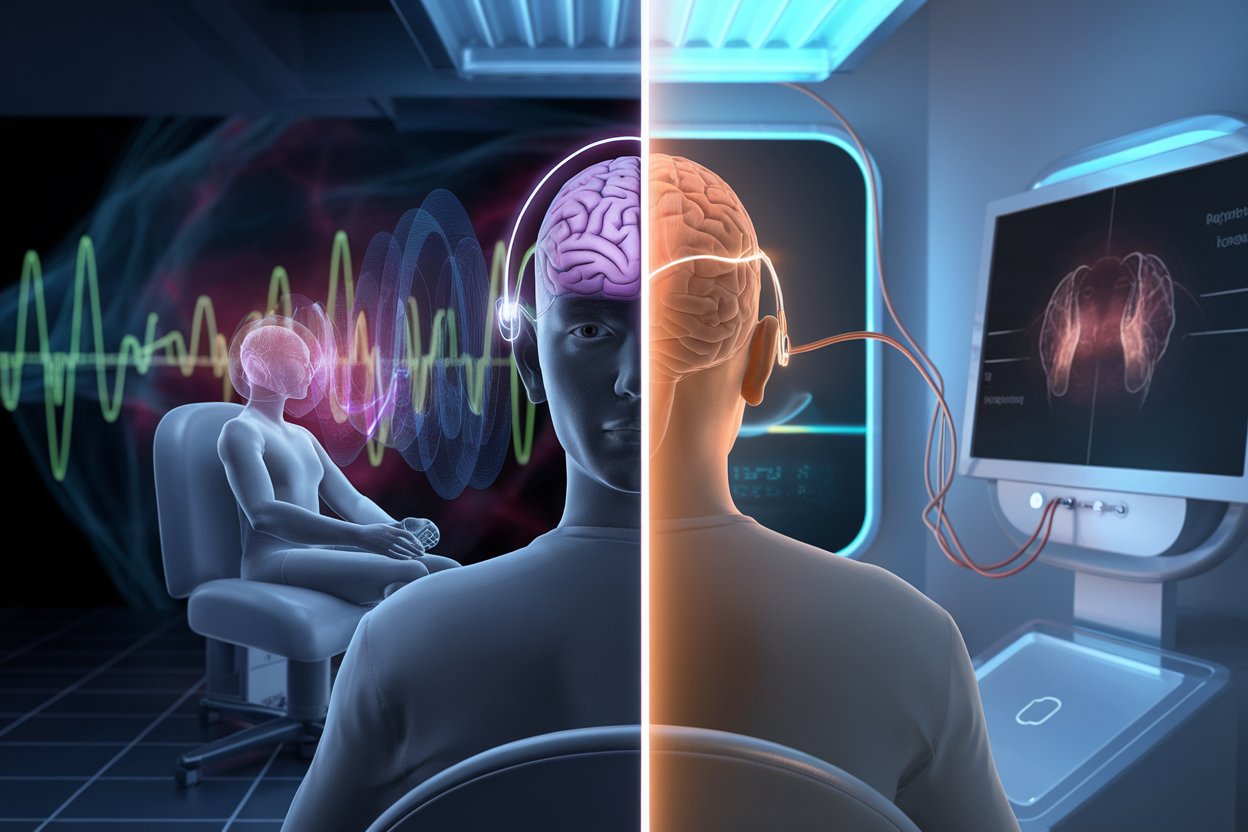Depression is a profoundly incapacitating condition that can impact all facets of an individual’s existence. Conventional treatment modalities, such as pharmacotherapy and psychotherapy, may not yield favourable outcomes for every patient. This is where transcranial magnetic stimulation (TMS) emerges as a viable alternative for recovery. In this blog, we will examine the myriad advantages of opting for TMS as a treatment for depression. Let us delve into the ways in which this pioneering therapeutic approach can effectuate significant change.
1. Understanding TMS Recovery
Transcranial Magnetic Stimulation (TMS) recovery entails the application of magnetic fields to activate neuronal cells within the brain. This non-invasive procedure is generally employed when alternative treatments for depression have proven ineffective. The mechanism underlying Transcranial Magnetic Stimulation (TMS) is specifically engineered to focus on cerebral areas associated with the regulation of mood. Through a series of repeated sessions, these regions of the brain can be reactivated, resulting in enhancements in depressive symptoms.
At the foundation of TMS recovery lies the principle of neuroplasticity, which denotes the brain’s capacity to reorganise itself through the formation of new neural connections. By administering magnetic pulses to targeted areas, Transcranial Magnetic Stimulation (TMS) facilitates this process, thereby enhancing the brain’s operational efficacy. This indicates that it not only alleviates symptoms but also endeavours to tackle the fundamental causes of depression. Harvard Health.
2. Non-Invasive Treatment
A notable advantage of Transcranial Magnetic Stimulation (TMS) recovery is its non-invasive nature. In contrast to surgical alternatives, this approach does not necessitate anaesthesia or incisions, thereby rendering it a safer option for numerous patients. The treatment is administered while the patient remains awake and comfortably seated, thereby mitigating the inherent risks typically associated with surgical interventions.
The non-invasive nature of TMS also means that patients can drive themselves to and from appointments and engage in regular activities immediately after each session. For individuals apprehensive about interruptions or recovery durations, this represents a significant advantage in terms of convenience. PrairieCare emphasises the limited disruption to daily life as one of its principal advantages.
3. Minimal Side Effects
There are many side effects that can happen when you take medicine for depression. TMS recovery, on the other hand, has few side effects. Headaches and scalp pain are the most common ones. Most of the time, these side effects only last a short time and get better as the treatment goes on.
Because TMS is a targeted treatment, it doesn’t have the systemic side effects that come with antidepressants, like making you gain weight, having problems with your sexual function, or having stomach problems NYC Psychiatric Associates. This makes it a very good choice, even for people who are sensitive to medicines.
In addition, TMS does not hurt memory or cognitive functions, which is a big problem with some treatments, like Electroconvulsive Therapy (ECT). Making sure there is a high safety profile without affecting mental clarity is a big plus for patients who want effective but gentle treatment options.
4. High Success Rates
Studies have shown that TMS recovery is a very good way to treat depression, especially in people who have tried other treatments and failed. It makes a big difference for many people that their mood and overall health get better. Response rates of 50% to 60% and remission rates of 30% to 40% show that this treatment works very well. Health at Harvard.
Multiple clinical trials and studies have shown that TMS is an effective way to treat depression that won’t go away. According to Stanford Medicine and other well-known studies, people not only feel better in the short term, but also continue to feel better over time. This makes TMS the best choice for long-term depression management.
5. Long-Term Relief
One more benefit of TMS recovery is that it might help for a long time. A lot of patients say they keep getting better, which means they don’t need to keep taking medicine or going to therapy. Some people go into remission after a course of TMS therapy, which can last for a few months and can be extended with maintenance sessions if needed.
The fact that TMS can help for a longer time makes it more appealing and useful in medicine. Studies have shown that the average time for symptoms to go away is between six months and a year Healthline. Extra booster sessions can be set up to keep people healthy and stop them from relapsing for those who need longer-term plans.
6. Improves Quality of Life
Depression can make life very hard for some people. TMS recovery helps people get back to enjoying daily activities and being more involved with their relationships and responsibilities by easing the symptoms of depression. Patients can keep up with their daily obligations and routines because the procedure is non-invasive and has few side effects.
TMS also improves mood and cognitive functions in ways that go beyond just getting rid of symptoms. A lot of patients say they have more energy, can think more clearly, and feel like they have a new purpose in life. This can lead to more productivity, better relationships, and more happiness in life in general, according to NYC Psychiatric Associates.
7. Broadly Accessible
As more people learn about TMS recovery, more clinics and doctors are starting to offer it. This makes it easier for people who are looking for alternative treatments for depression to get it. TMS is becoming easier to get, which means that more people can benefit from its benefits without having to travel far.
American TMS Clinics make it a priority to make sure that all patients can get treatments and can afford them. Find out more about their different payment and insurance options and how their goal is to help patients succeed. The goal is to make TMS an option for as many people as possible, which will make mental health care more available to everyone.






